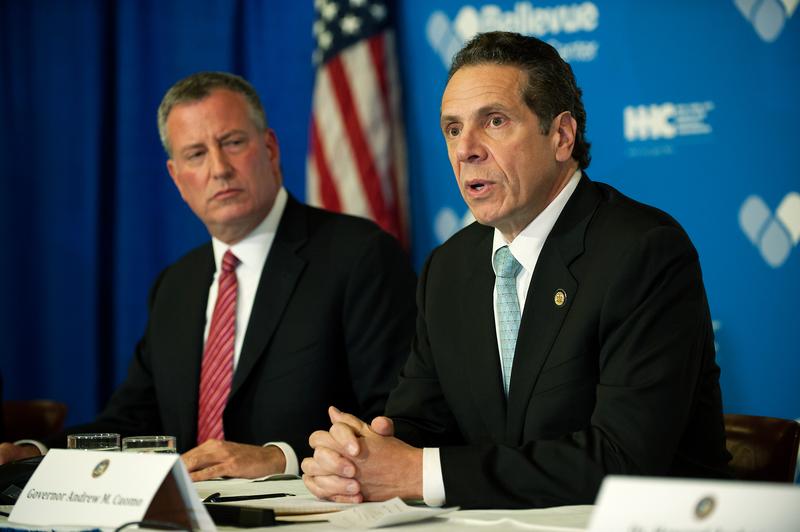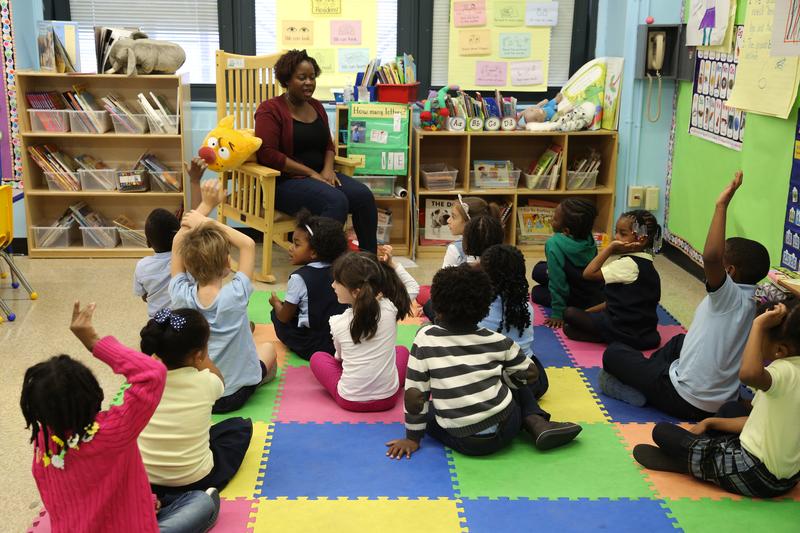
The politics of education dominated 2015 from Albany to Brooklyn's waterfront.
Cuomo's About Face: Gov. Andrew Cuomo started the year with guns blazing, as he took on the teachers unions. After complaining that too many teachers got high ratings despite lackluster student performance, he persuaded Albany to change the teacher evaluation system once again by giving more weight to student test scores. But many teachers and parents thought the governor went too far in attacking educators. They also complained about the emphasis on standardized tests, especially because they were aligned to new Common Core standards that they argued had been rolled out too quickly.
In the spring, a record-breaking 20 percent of students opted out of the state's elementary and middle school tests as a form of protest. That got the governor's attention. Cuomo appointed a task force to study both the Common Core and the teacher evaluation system. In December, the Board of Regents adopted the task force's recommendation for a moratorium on the use of student test scores in teacher evaluations until 2019, as well as an overhaul of the Common Core learning standards.
De Blasio's Loss in Albany: The law giving New York's mayor control over the city's public schools came up for renewal again in 2015. But while Michael Bloomberg won a six-year extension of the law during his mayoralty, state legislators only granted de Blasio a one-year extension. It was a humbling and frustrating moment for the mayor. He accused the governor of "playing political games."
Renewal Schools Under Scrutiny: Mayor de Blasio ended the year with a reversal on his strategy for low performing schools. His administration announced that it would close three of them, including two that were part of his Renewal program for the most troubled schools. Critics, including Regents Chancellor Merryl Tisch, had complained that it was a waste of money to try to help such schools by giving them a longer day and investing in professional development. They favored former Mayor Bloomberg's policy of closing poorly performing schools.
To be fair, de Blasio and Chancellor Carmen Fariña maintained all along that they would close Renewal schools that did not show signs of improvement. Fariña told the City Council that the Renewal program was working, even though test scores had yet to go up. The chancellor has also begun merging under-enrolled and low performing schools. Five consolidation plans were approved this year for 10 schools, and three more are planned for next year.
School Segregation: A 2014 study finding New York City has some of the most segregated schools in the country fueled intense debate this year as communities took a hard look at the impact of gentrification. In Dumbo and on the Upper West Side, families wrestled with proposals to rezone overcrowded schools that draw a large proportion of white and affluent children, by sending some of them to schools with lower test scores, higher poverty rates and many more children of color. The Brooklyn plan will be voted on next week, but the Manhattan one was postponed for a year. Meanwhile, the chancellor approved proposals for seven schools to consider socioeconomic status and language skills in order to maintain or increase diversity. But some educators and advocates around the city are calling for further action, and our WNYC series Power Lines will continue covering the topic.
Pre-K Expands Again: Mayor de Blasio said he achieved his goal of universal pre-kindergarten last fall, when the city offered free full-day seats to more than 68,000 children. The city said this included 1175 children living in shelters, the highest number ever enrolled in the program. A quality check, conducted by the city, also found about three quarters of the pre-k sites were meeting standards linked to the development of children's language and social skills. Nonetheless, there are still concerns about the low pay of providers.
Charter Politics: In one of the oddest political announcements of the year, charter school leader Eva Moskowitz held a press conference at City Hall to say she would not be running for mayor in 2017. Moskowitz has long been a divisive figure in city education circles. In the fall, the New York Times ran a report finding staffers at some of her charter schools had singled out students they wanted to see leave.
Meanwhile, the charter sector didn't get all it wanted from Albany this year. Lawmakers only agreed to allow 50 more charters in New York City, less than proponents had sought. But the city has followed a new state law by paying more than $30 million in rent to charter schools that do not get free space in public school buildings.

